Computing

The School of Computing offers many broad, flexible Plans, each providing you with a solid foundation in the science and principles of computing. Theory and application are balanced as you put your knowledge to work under the guidance of award-winning researchers. Choose from a Computing-specialist Plan (Computer Science, Software Design), a multi-disciplinary Plan (Biomedical Computing, Cognitive Science, Computing and the Creative Arts, Computing and Mathematics), or design your own program by incorporating a Major or Minor Plan in Computing with another Plan in the Creative Arts, Humanities, Languages, Social Sciences, or Natural and Physical Sciences.
Employment Relations Studies

The study of employment relations has a long tradition at Queen’s, with several programs at both the graduate and undergraduate levels providing a broad foundation in the field, including labour-management relations, labour and employment law, conflict management and negotiations, economics, human resources management, organizational behaviour, and labour policy.
Environmental Studies

In the School of Environmental Studies, you will acquire an appreciation of the scope and complexity of environmental systems, the ability to deal with the socio-economic dimensions of an issue, and the fundamental knowledge to adapt to changes in the future. Students will study environmental systems from both the perspective of the natural and physical sciences, while recognizing the human and cultural dimensions of the issues.
Film and Media
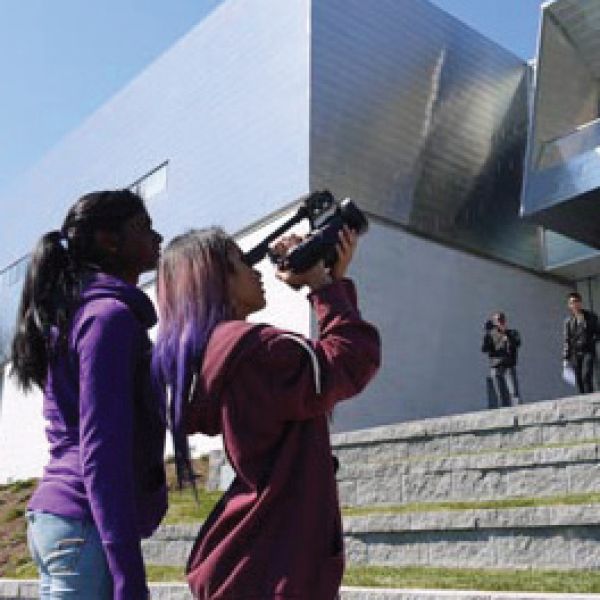
In the Film and Media Department at Queen’s, you will examine modern forms of film, video, television, and emerging varieties of digital culture. You will study the forces that have shaped film and media communication, explore the history and theory of film production, and engage directly in the production of film and video. For students interested in collaboration between the fields of drama and film, there is a Specialization Plan in Media & Performance Production.
Gender Studies
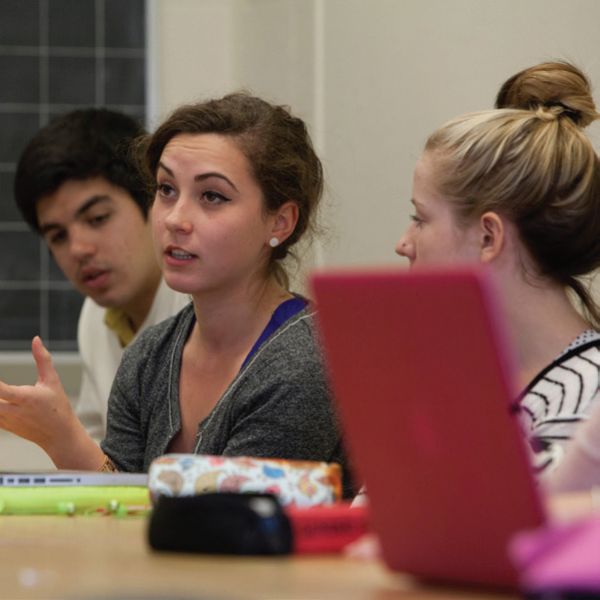
The Department of Gender Studies at Queen’s is distinguished by the centrality of the study of race and colonialisms across all its courses, and by a focus on how to apply knowledge within work for social change. Our curriculum is organized around six key themes: feminist, queer, trans, anti-racist, Indigenous, and postcolonial theories and methodologies; activism and social justice; political economy; representation, art, literature, and creative work; and oral histories and community memories.
History
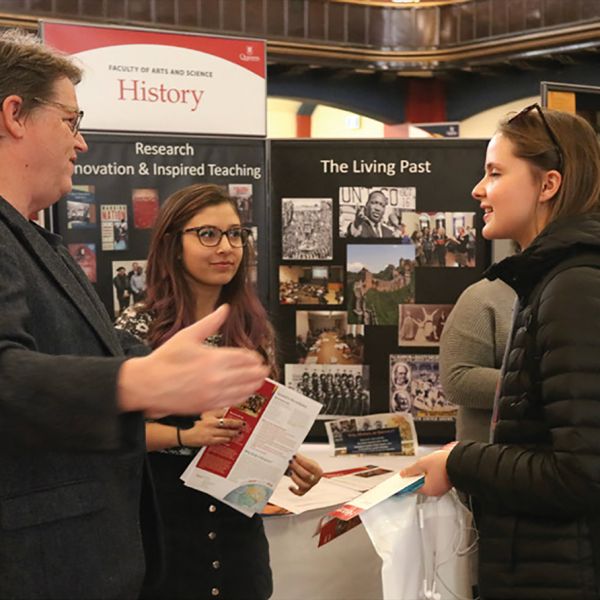
The History Department offers a wide range of courses that span from the pre-modern past to the contemporary era. Geographically, History courses circle the globe and draw from the histories of Africa, Canada, the Caribbean, East Asia, Europe, Latin America, South Asia, and the United States. Thematically the curriculum builds on a number of disciplinary vantage points, including cultural, economic, environmental, gender, global and transnational, Indigenous, intellectual, labour, legal, political, and religious history. Apart from the core curriculum, students have the opportunity to undertake a variety of independent research, community projects, experiential learning, and internship opportunities. The focus on humanistic education and the emphasis on analysis, critical thinking, research, communication, and writing skills prepare history students for careers in law, education, public policy, business, museum and archives, publishing, research, and media.
Industrial Relations Centre
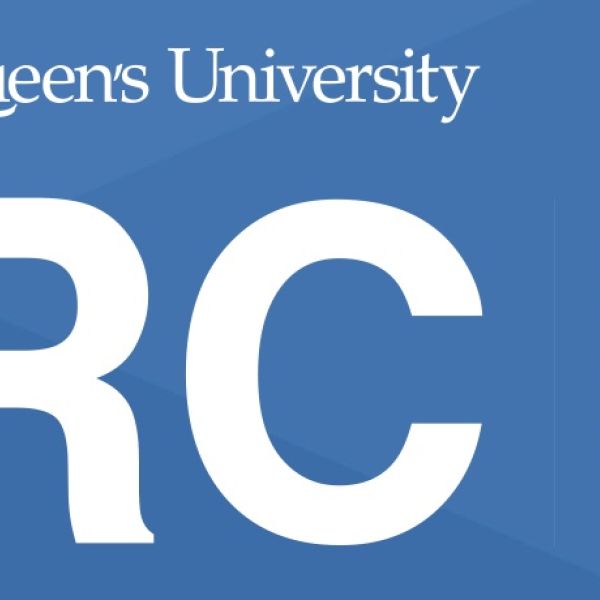
Queen’s University Industrial Relations Centre (IRC) is a leading provider of premium professional development programs in labour relations, human resources and organization development. IRC programs are designed for busy practitioners, delivered by subject matter experts, and grounded in adult learning principles.
As a result of continuous practitioner-focused research and more than 80 years of experience, we have identified the core competencies every organization development, human resources, and labour relations practitioner needs to be successful. Each of our programs focuses on one of these essential skills.
Kinesiology and Health Studies

The Kinesiology Specialization Plan is a multi-disciplinary, science-based program that focuses on human movement in the applied exercise-science fields of study such as biomechanics, ergonomics, exercise physiology, and physical activity epidemiology. While the Plan is primarily science-based, students also learn about human movement in the context of exercise and sport psychology, health promotion, and the socio-cultural aspects of physical activity. The B.Sc.(Hons.) Kinesiology Plan has been designed to meet the minimum accreditation standards for Kinesiology programs accredited by the Canadian Council of University Physical Education and Kinesiology Administrators (CCUPEKA). Admission to the Kinesiology Specialization Plan, leading to a Bachelor of Science (Honours) degree, is by direct-entry from high school.
The Health Studies Plan is a social science concentration that addresses subject areas bearing on human health. For the public health care system in Canada to function effectively both the social and physical determinants of health at the individual and societal level need to be understood in the context of health education, health policy, community health, and epidemiology. The core competencies of the Plan include health processes (e.g., implementation of programs and policies), health content (e.g., nutrition, sexuality), and supporting knowledge and concepts fundamental to the evaluation of health (e.g., behaviour, lifestyle choices). Major, Joint Honours and Minor/General Plans in Health Studies are all available, leading to a Bachelor of Arts (Honours) degree, with admission based on first-year standing and grade in the foundational social determinants of health course (HLTH 101).
Languages, Literatures and Cultures
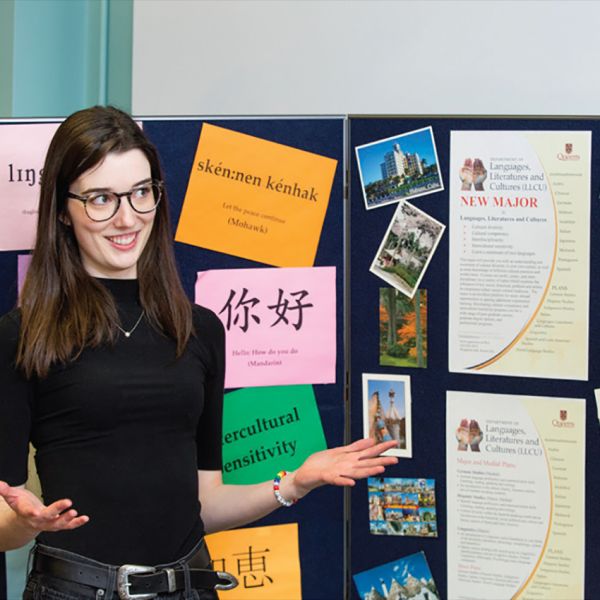
The Department of Languages, Literatures, and Cultures is a multidisciplinary unit that offers students the opportunity to learn languages, develop an understanding of literary and cultural traditions, and pursue studies in the field of Linguistics. The Department offers language courses in Anishinaabemowin, Arabic, Chinese, German, Hebrew, Inuktitut, Italian, Japanese, Mohawk, Oneida, Portuguese and Spanish, Degree Plans in: German Studies; Hispanic Studies; Indigenous Studies; Italian; Languages, Literatures and Cultures; Linguistics, Spanish and Latin American Studies; and World Language Studies, and a Certificate in Indigenous Languages and Cultures. Learning a language prepares students to travel, live, or work internationally and makes them more linguistically competent in Canada’s multicultural environment. The Department of Languages, Literatures and Cultures also offers over 50 courses in English on various cultural and literary topics. These are open to non-LLCU students and can be taken as electives. A degree focusing on languages, literatures, and cultures, or focusing on Linguistics, provides students with valuable transferable skills that are increasingly important in our global world, especially intercultural competencies which are becoming ever more relevant in today’s global work environment. The Department encourages students in all our disciplines to participate in one of the many international study opportunities supported by Queen's.
Policy Studies

The School of Policy Studies offers a rich and rewarding learning experience that is unsurpassed in Canada and matched only by the best public policy programs in the world. Through high quality interactive teaching and integrated learning, we enhance leadership in public policy by providing students the inspiration, skills, competencies and connections to become better contributors to the public good. The MPA curriculum includes core courses in economics, policy analysis, governance, management and quantitative methods. Through elective courses, students apply their skills to the analysis and resolution of concrete policy and management problems.
Religion
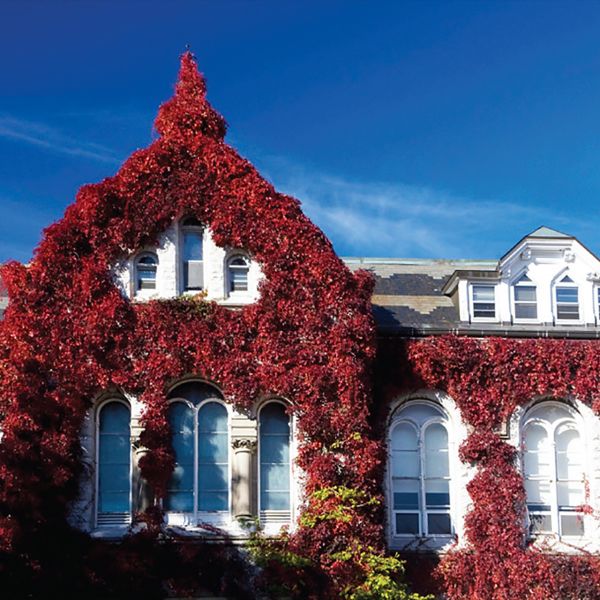
Religion plays a major role in shaping and influencing various cultures and historical and political movements around the world. Thus, understanding religious traditions and their impact on diverse modern issues is vital preparation for building a career in the global marketplace. Studying religion involves examining the history of religious traditions, comparing the ideas and values of different religious systems, and understanding the place and function of religion in society. Students of Religious Studies investigate why people are religious, where religion comes from, and how it should be defined and understood.

